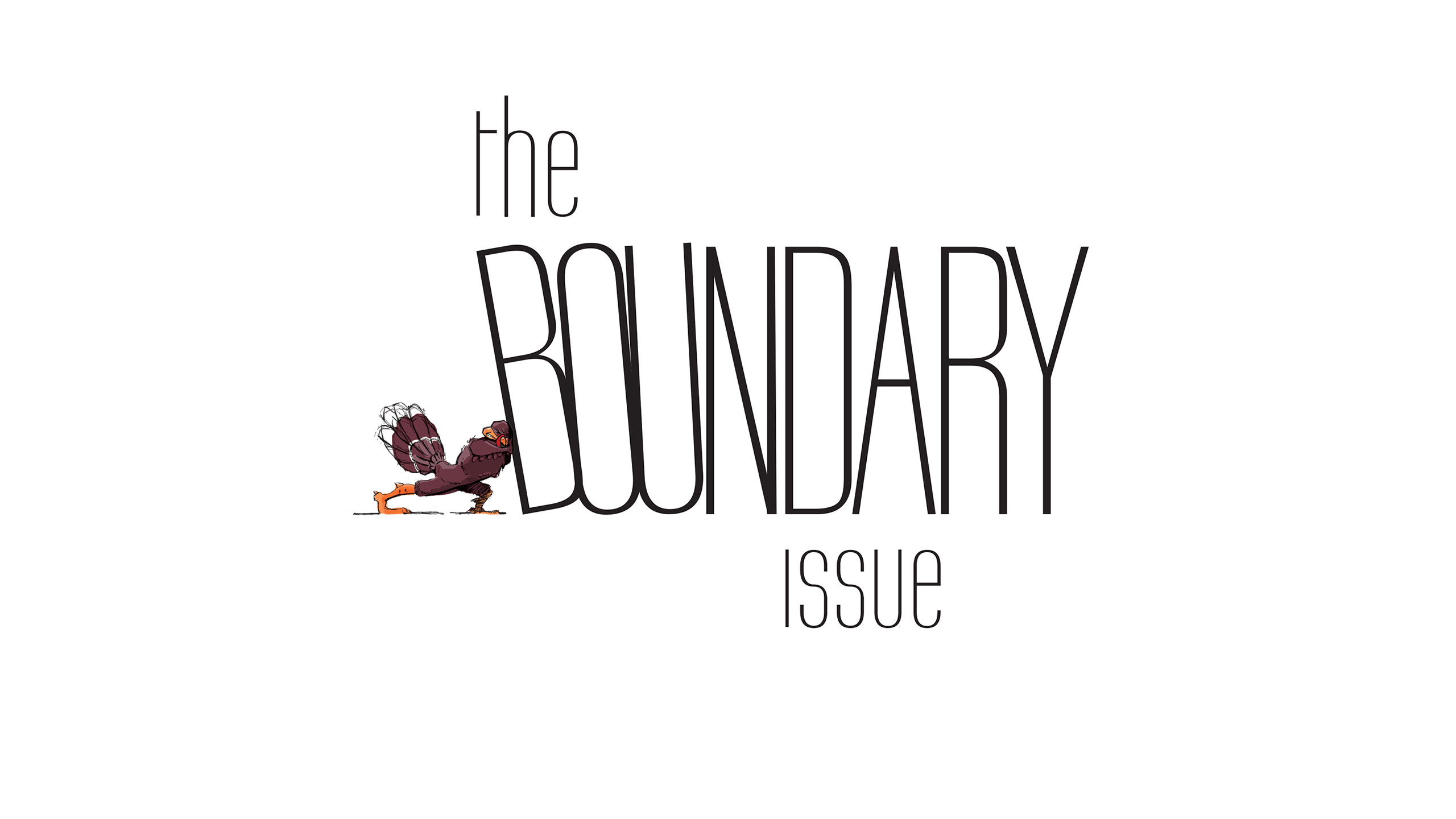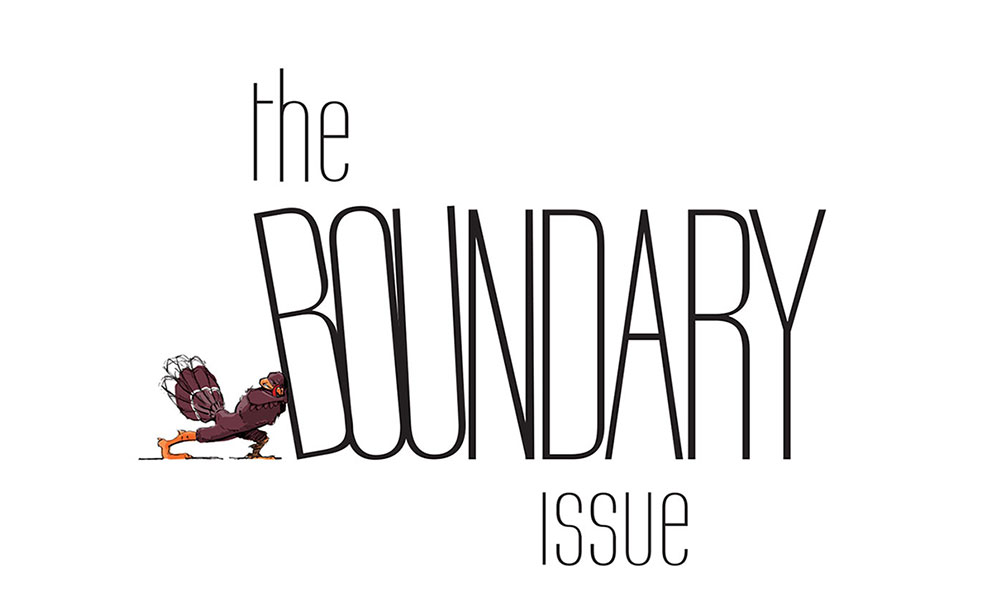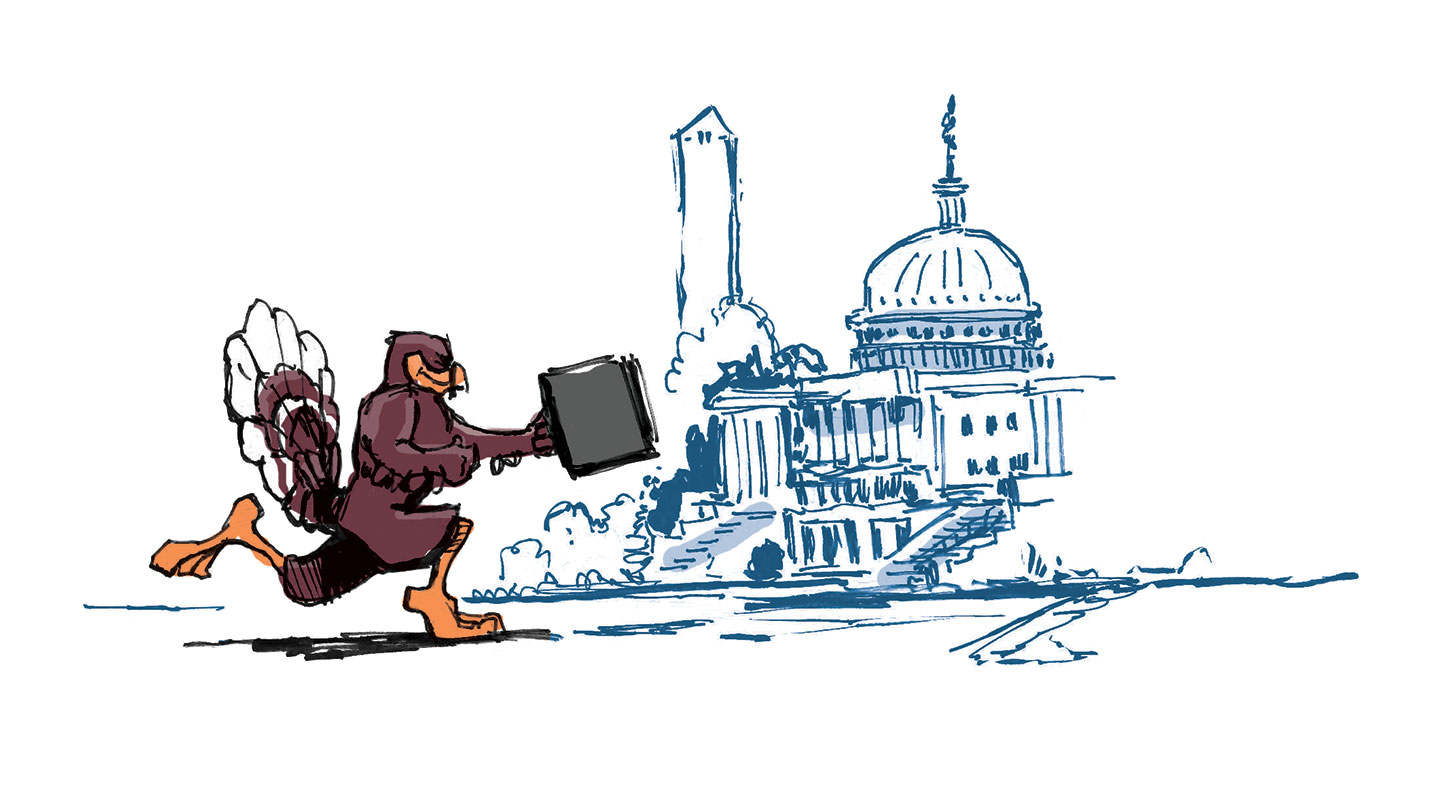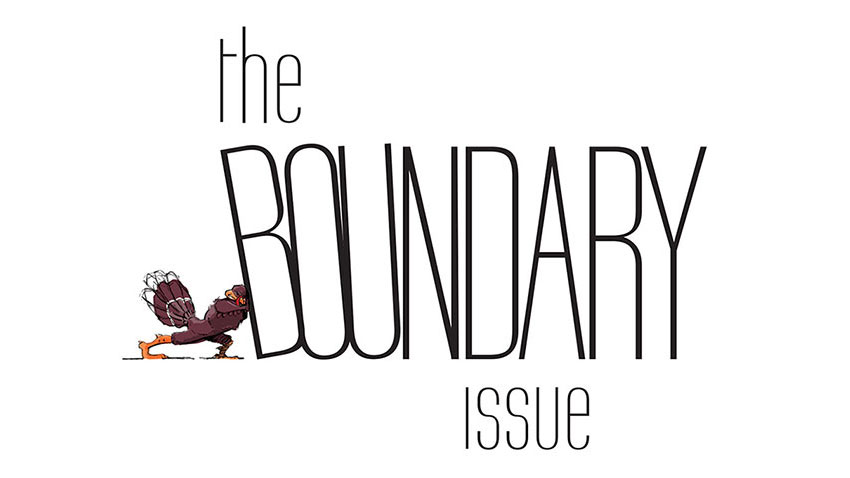

Plunk a technologically advanced university in the rural, rolling hills of the Blue Ridge Mountains, purposefully choose a bold palette of maroon and orange as the school colors, designate a turkey as the school mascot, and nickname this tightly knit community Hokies.
That brand of moxie is ingrained at Virginia Tech, where pushing the envelope isn't optional. It's expected.
Breaking boundaries isn't just something we do. It's who we are. It's part of our history and the key to our future. Hokies aren't afraid to be different, to shake things up, to lead the change. So when Virginia Tech President Tim Sands outlined an ambitious vision that would position our university at the center of defining the role of the 21st-century land-grant institution and transforming higher education, university leaders, faculty, staff, and students took notice and got to work.
In his State of the University address , delivered in September 2016, Sands offered initial glimpses of how Virginia Tech is advancing as a world leader while remaining true to its land-grant mission and motto, Ut Prosim (That I May Serve).
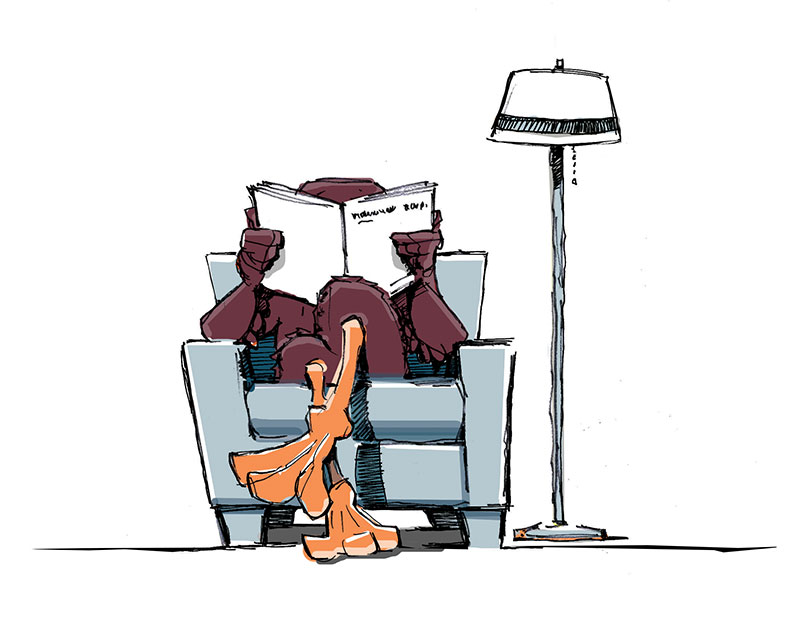
In his State of the University address , delivered in September 2016, Sands offered initial glimpses of how Virginia Tech is advancing as a world leader while remaining true to its land-grant mission and motto, Ut Prosim (That I May Serve).
Falling firmly within the context of the university's history of bold moves, the charge is clear. Our goal is to answer the big questions and to discover the solutions to meet the changing needs of students and employers — and a world population projected to reach nearly 10 billion by 2050.
Our vision for Virginia Tech is already manifesting itself in significant ways. The examples that follow illustrate our commitment to meaningful change. Some of these stories are likely familiar. Others may be new. And still more may surprise you with their spectrum and initiative. Together, they are writing the next chapter in Virginia Tech's story, which began when Addison Caldwell, inspired by the promise of an education, walked 26 miles from Craig County to Blacksburg.
Although students today are more likely to arrive by car, they still set out to Virginia Tech to pursue the diverse educational opportunities that will enable them to tackle global challenges and shape the future.
Point of focus
In May 2015, Sands launched a yearlong effort to rethink the university of tomorrow. He challenged a faculty-led committee to envision Virginia Tech, without constraints, a generation into the future.
The initiative, known as Beyond Boundaries, brought together students, staff, faculty, local government officials, and representatives from the Board of Visitors. Participants spent a year focused on four thematic areas central to the university's advancement: the campus of the future, preparing students for the world, discovering new funding models, and advancing as a global land-grant university.
"This vision is not a blueprint or a strategic plan; it is a method of engaging with a rapidly changing world," Sands said. "This work will benefit the university community for years to come."
Initial extensions of Beyond Boundaries included the development of Destination Areas as crosscutting themes that will attract global talent and partners, along with an incubator that would entertain proposals to advance Beyond Boundaries concepts.
(For details, see "Shaping the Land-grant University's Future" in this edition.)
Flying burritos
Burritos delivered by drones are definitely cool options for satisfying lunchtime cravings, but that's only part of the story.
Autonomous vehicles and unmanned aircraft are gaining momentum as experts in the transportation industry plan for the future. Virginia Tech, as the leader of the Mid-Atlantic Aviation Partnership (MAAP), operates one of six Federal Aviation Administration-authorized (FAA) test sites for autonomous vehicle development. In fall 2016, the university made history by partnering with Project Wing to host the first-ever campus testing of drone-delivered burritos. Project Wing is part of X, an innovation lab, formerly known as Google[x], that incubates new breakthroughs in science or technology.
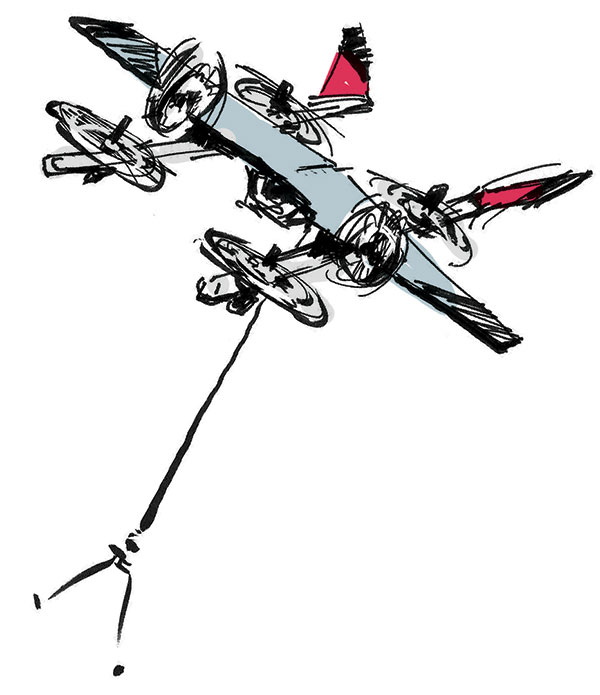
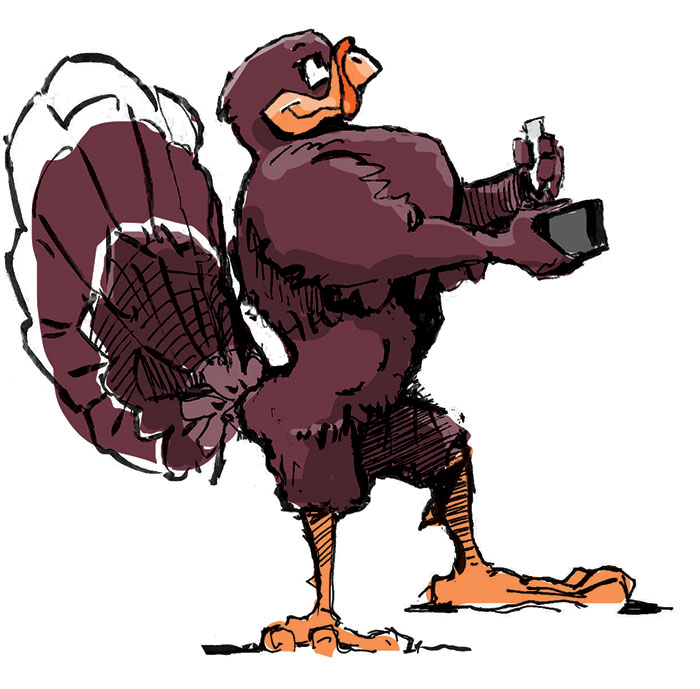
The research, a step toward integrating deliveries by unmanned aircraft into everyday life, is part of Virginia Tech's commitment to create intelligent infrastructure for human-centered communities, a $75 million initiative to provide experiential learning opportunities for students and to build infrastructure that supports sustainable communities and co-evolves with users. Extended flight tests at Virginia Tech yielded technical, safety, and user-experience data on food delivery by unmanned aircraft, which then were shared with the FAA. So far, the consensus seems to be that the drones provided a visually spectacular delivery option.
And while lunch transformation in Blacksburg is making history, Virginia Tech is looking for ways to strengthen its community and business partnerships in the Star City — about 30 miles away as the drone flies.
Expanding partnerships
Several years ago, Virginia Tech reinvigorated Roanoke through the university's partnership with Carilion Clinic and the creation of the Virginia Tech Carilion School of Medicine and Research Institute. In 2016, the university took the next step and announced plans to make the medical school Virginia Tech's ninth college, embarking on a dramatic expansion of the Carilion partnership to create an international impact on the biomedical field. The medical school and closely aligned research institute will form the core of the expanded Virginia Tech Carilion Health Science and Technology Campus.
In 2017, the Virginia Tech Carilion School of Medicine (VTC) will graduate its fourth class of doctors. For three consecutive years, the school has achieved a 100 percent match rate, with all of its graduating students successfully paired with a residency program.
The research institute supports 25 major research teams that have been awarded grants totaling more than $12 million per year. These interdisciplinary teams include investigators with expertise in a range of disciplines, from biology and chemistry to computer science and economics. The teams' studies address issues such as addiction, substance abuse, cancer, cerebral palsy, child neglect, developmental disabilities, and traumatic brain injury.
Tech plans to invest $100 million in health sciences and technology over eight years, including a new $67 million building that will double the size of the research institute, and to move pieces of its biomedical engineering program and neuroscience endeavors to Roanoke, developing that campus into a full-fledged biomedical district.
Led by Michael J. Friedlander, the founding executive director of the Virginia Tech Carilion Research Institute, the health sciences and technology initiative will also connect to the National Capital Region, which is expected to provide resources in computation, as well as data, electronic health records, and social science analytics. "We are going to differentiate ourselves at the interface of health science and technology across the whole Virginia Tech system, including Blacksburg, Roanoke, and Arlington," Friedlander said.
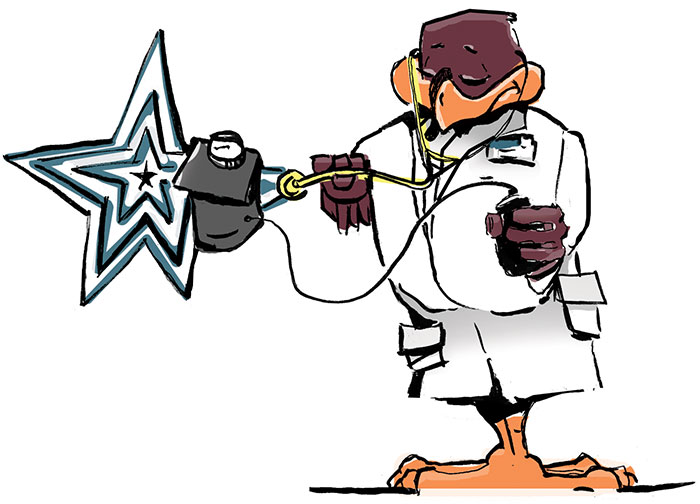
Led by Michael J. Friedlander, the founding executive director of the Virginia Tech Carilion Research Institute, the health sciences and technology initiative will also connect to the National Capital Region, which is expected to provide resources in computation, as well as data, electronic health records, and social science analytics. "We are going to differentiate ourselves at the interface of health science and technology across the whole Virginia Tech system, including Blacksburg, Roanoke, and Arlington," Friedlander said.
Virginia Tech has long maintained a presence in the national capital through the Ted and Karyn Hume Center for National Security and Technology, which heads the university's educational and research programs supporting the defense and intelligence communities and executes a broad range of research programs in wireless communications, satellite engineering, cybersecurity, and big data. The Integrated Security Destination Area will expand the center's role and Virginia Tech's influence on current and future decision-makers.
Tech's footprint in Washington, D.C., is not limited to its academic and research programs, however: Our researchers and thought leaders are actively involved in shaping public policy. Marc Edwards, the Charles Lunsford Professor of Civil and Environmental Engineering, testified to a congressional committee about his work with a group of students and other faculty to expose widespread elevated levels of lead and dangerous Legionella bacteria in Flint, Michigan. Their work, which united a coalition and exposed a citywide health crisis that should serve as a warning for all communities facing crumbling infrastructure, was covered in detail in the of Virginia Tech Magazine. This past fall, Edwards was a finalist in Time magazine's Person of the Year competition, and the work of his team continues to support the Flint community.
In November, Virginia Tech officials gathered at the White House to receive Tater and Tot, turkeys pardoned by former President Barack Obama during an annual White House ceremony. (Read more about Tater and Tot in "Ruling the roost" in this edition.)
Buildings, business, and big ideas
In fall 2016, Virginia Tech revealed plans for a more than $225 million Global Business and Analytics Complex — which will house the Pamplin College of Business — to galvanize people who share a passion for an analytic approach to problems that occur in societies, governments, and businesses throughout the world.
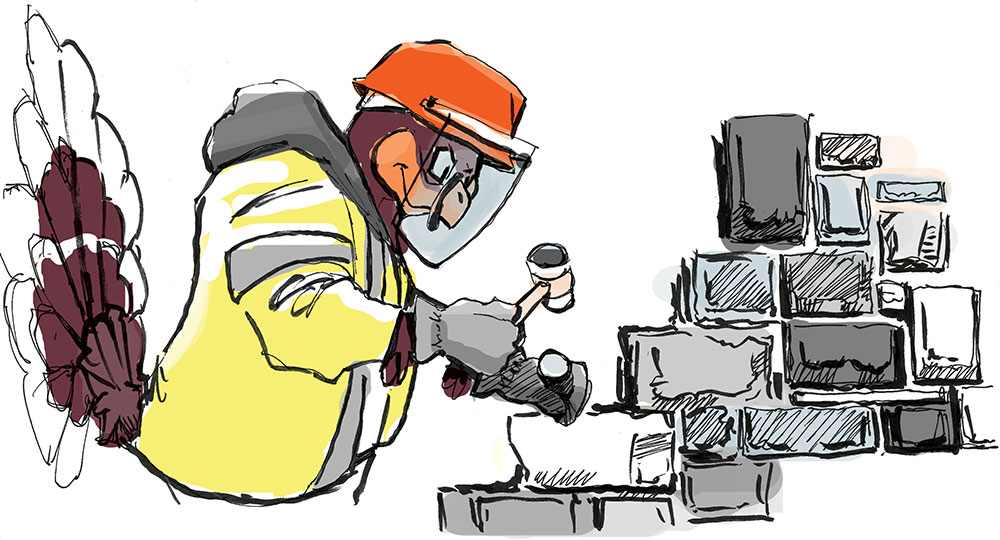
Four new structures are planned on the Blacksburg campus, including two academic buildings and two living-learning residential communities for some 700 students. In addition to the facilities envisioned for Blacksburg, "our goal is to develop similar analytics complexes in Roanoke, centered on health analytics, and in the National Capital Region, focused on technology and solutions transition of our research and outreach to government and industry, combined with experiential learning opportunities for students," said Naren Ramakrishnan, the Thomas L. Phillips Professor of Engineering, director of the Discovery Analytics Center, and a member of the faculty team that designed the Data Analytics and Decision Sciences Destination Area.
In addition, preliminary plans for an Intelligent Infrastructure and Construction Complex were announced in spring 2016. A new building within the complex will expand the Myers-Lawson School of Construction, offering increased space to accommodate growth. Since its founding, more than 600 students have graduated from the school's programs, and the Class of 2016 recorded a 100 percent job placement rate within three months of graduation, commanding an average starting salary of $61,000.
All of the university's growth isn't destined for the future, though: There is change afoot now. To accommodate the big ideas and crucial research of Virginia Tech students and faculty, a new $42 million Classroom Building, complete with 15 classrooms and four teaching labs, opened in the fall. Two of the classrooms feature round tables with 60-inch screens that can be used by students or the professor.
In addition, on the Upper Quad, construction of a second Corps of Cadets residence hall is underway, and plans for the Corps Leadership and Military Science Building are moving forward on schedule.
Video by J. Scott Parker
Raising the bar
High achievers always want more — more hands-on experiences, more travel, more exposure to experts and people from diverse backgrounds, more opportunities to make a difference for good.
To answer that call, Virginia Tech has elevated its University Honors program to a full-fledged Honors College to attract students of the highest caliber and offer them more chances to explore their passions and change the world in meaningful ways.
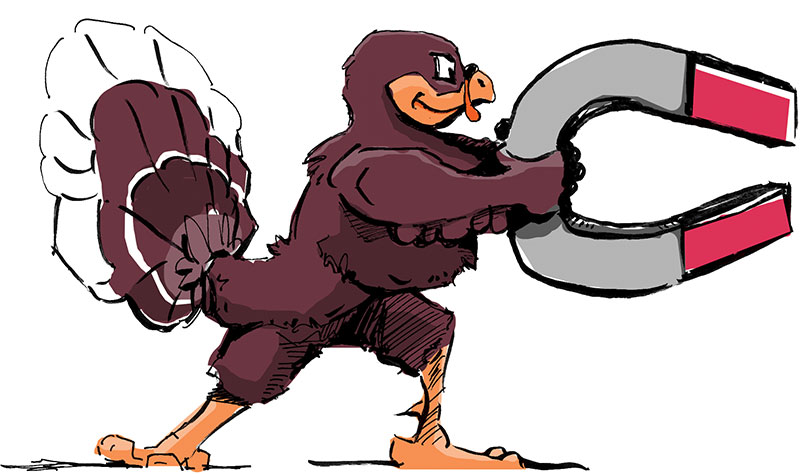
The Honors College confers no degrees, only diplomas, allowing it to act as a talent magnet for the seven Virginia Tech colleges that offer undergraduate degrees.
The Honors College confers no degrees, only diplomas, allowing it to act as a talent magnet for the seven Virginia Tech colleges that offer undergraduate degrees.
"Our students are up for a challenge," said Honors College Dean Paul Knox, a University Distinguished Professor and Senior Fellow for International Advancement. "We expect more from them, but in return, we expect to give them expanded opportunities to pursue their interests as we create the persona for this new college."
The shift from an honors program to the Honors College will expand opportunities for diverse experiences while opening the door to accommodate more scholarship funding through initiatives like the Beyond Boundaries Scholars program. This matching gift program was rolled out in November 2016 as a solution to reduce cost as a barrier to enrollment for underrepresented and high-achieving students.
The Honors College will set the gold standard for Virginia Tech's undergraduate education and its ability to develop VT-shaped individuals who balance deep disciplinary knowledge with breadth in a variety of topic areas, along with experiential learning and a commitment to service — students who, as alumni, will continue to enrich their lives and the lives of those around them.
Video by J. Scott Parker
Balancing ideas and actions
Our mission-oriented ideals drive us to put big ideas to work and to make our innovative research meaningful, a process that requires reaching out to develop partnerships with businesses and organizations committed to progress. In that light, Virginia Tech is creating a Business Engagement Center. Announced in January, the center will enable the university to expand its partnerships with leading companies.
One notable partnership was established in December 2016. Virginia Tech was one of 17 universities to sign a sponsored academic research agreement with Facebook, removing barriers and encouraging collaboration on future research projects.
In an online post announcing the partnership, Virginia Tech alumna and Facebook executive Regina Dugan (mechanical engineering '84, M.S. '85) wrote, "The SARA (Sponsored Academic Research Agreement) is designed to make it easier and faster for B8" — shorthand for Building 8, Facebook's advanced research group, which Dugan oversees — "to work with university researchers. Not in the 9-12 months that's typically required. But within weeks."
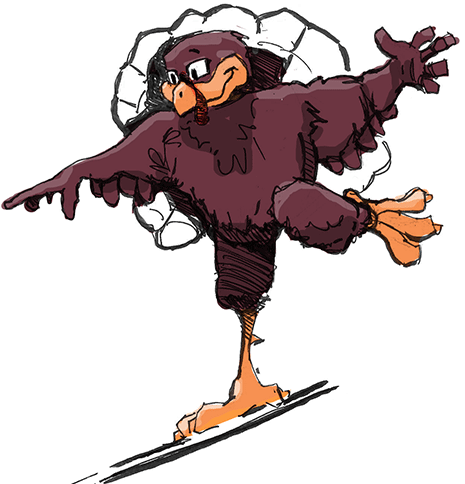
Dugan knows a thing or two about pushing the limits; in fact, she's made a career of it. She recognizes the challenges implicit in change, suggesting that the biggest obstacle to innovation is not failure, but the fear of failure.
During a visit to Virginia Tech in August 2016, Dugan said, "I believe that we have to choose, actively choose, to be terrified. I'm a little terrified pretty much every day. When we choose to be terrified, we share a vulnerability. And that vulnerability becomes our bond.
"It is the bond that people who are associated with building the future of this university feel. It is not even 'when' it's a little terrifying. It's rather precisely 'because' it is a little terrifying. Because it is authentic and human and scary to dare and dream and do."

The Facebook partnership is only one of the new agreements the university has forged in recent months. In November 2016, Virginia Tech and Lockheed Martin signed a master research agreement, building on a longstanding and solid relationship. The agreement provides a framework to foster increased research collaboration, greater recruiting initiatives, and technical engagement in university programs.
InclusiveVT
Safari does not support 360° videos.
Strolling across the Drillfield today, one is likely to encounter a diverse group of students, staff, visitors, and faculty. Our campus hasn't always been that way, but according to Vice President for Strategic Affairs and Vice Provost for Inclusion and Diversity Menah Pratt-Clarke, who joined Virginia Tech in 2016, there is even more work to be done.
In an open letter, she wrote, "Today's world is a world of many ideas, thoughts, perspectives, backgrounds, experiences, philosophies, and beliefs. … It is a world that needs courageous and compassionate leaders who are committed to Ut Prosim, in the spirit of community, diversity, and excellence."
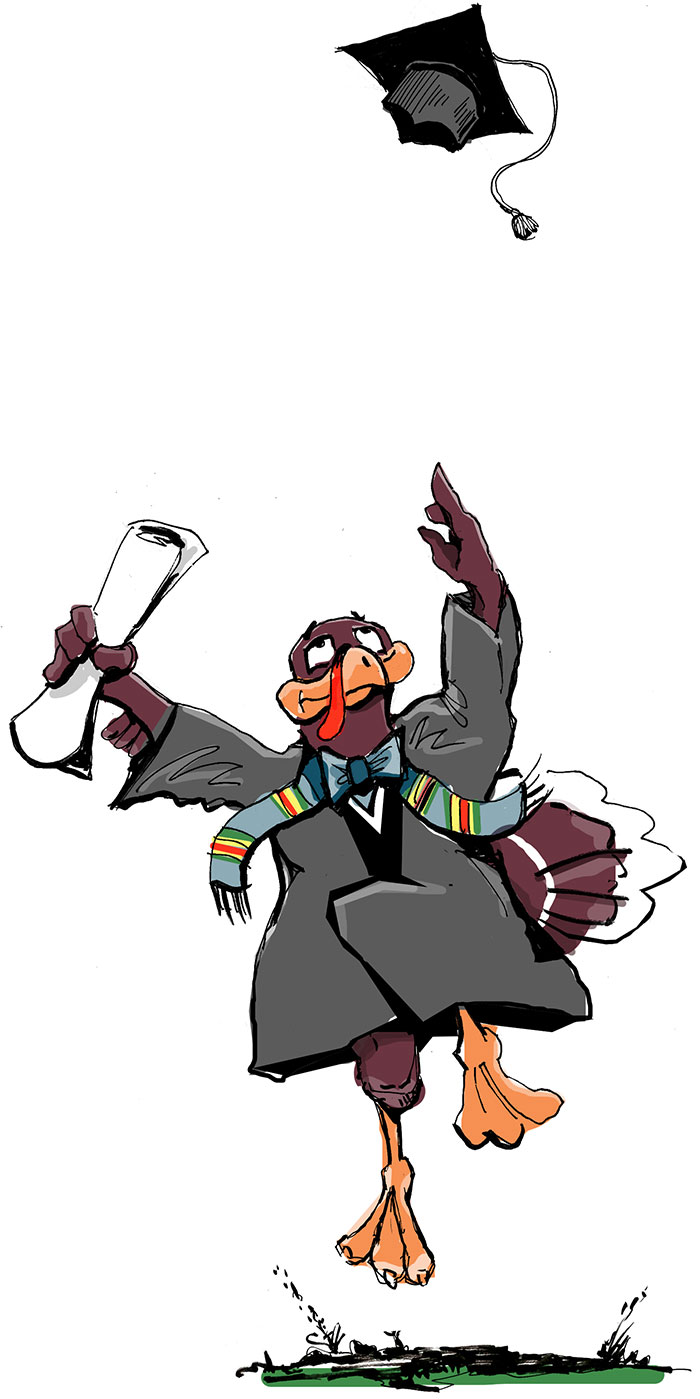
In 2016, Virginia Tech embraced a diverse future, in part by acknowledging a pioneer from its past and also by reaching out with a message of inclusion.
Irving Linwood Peddrew III, the first black student to attend Virginia Tech — and the first to attend a historically all-white four-year public institution in the 11 former states of the Confederacy — received an honorary bachelor of science in electrical engineering at Tech's spring commencement ceremony. Peddrew studied three years on the Blacksburg campus before moving to California to join the workforce without completing his coursework.
In the fall, Virginia Tech organized a series of discussions about difference and identity as part of an InclusiveVT initiative, #VTUnfinished. Students, faculty, staff and the broader community were invited to share their experiences, stories, questions, and apprehensions in an open forum to help identify where differences lie. The overriding goal of the initiative is to promote positive interactions among people of varying backgrounds, beliefs, and lived experiences.
Taking steps toward building a community of respect that bridges differences furthers the commitment to honor and live the university motto.
Can you see yourself?
You don't have to look hard to see the progress. The evidence is clearly visible at the Virginia Tech Carilion School of Medicine and Research Institute in Roanoke, at university facilities in the National Capital Region, and in the broader world.
In September, Sands asked these questions: "What does our history and tradition call on us to do? Where does our spirit of innovation and entrepreneurship lead us? What is the best way to honor the spirit of Ut Prosim?"
Our alumni and friends are integral to our future. You can be a part of our continued success. Share our stories. Find a way to get involved with an initiative on campus. Look for ways to live out our university motto in your community and your workplace. Accept the challenge to move beyond traditional boundaries.
"We cannot afford to miss this window of opportunity during the short time it is open for us," said Sands as he closed his address. "This is our moment. This is our century. And today, I believe there is no better place to be in higher education than right here, right now. The window is open for us now, and we're going to do what Hokies do best. Let's go!"
Around the Drillfield
Features
- The Boundary Issue
- Hard-hitting Research
- Every Hokie Has a Story
- Shaping the Land-Grant
- The Giving Spirit
